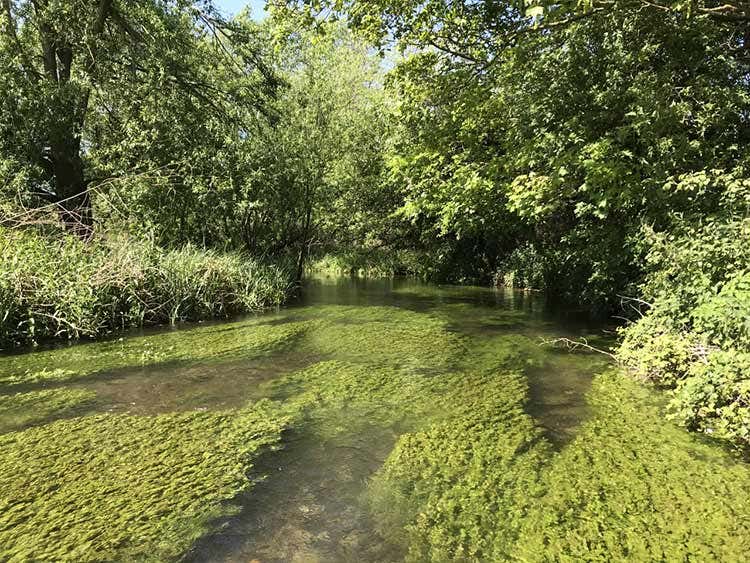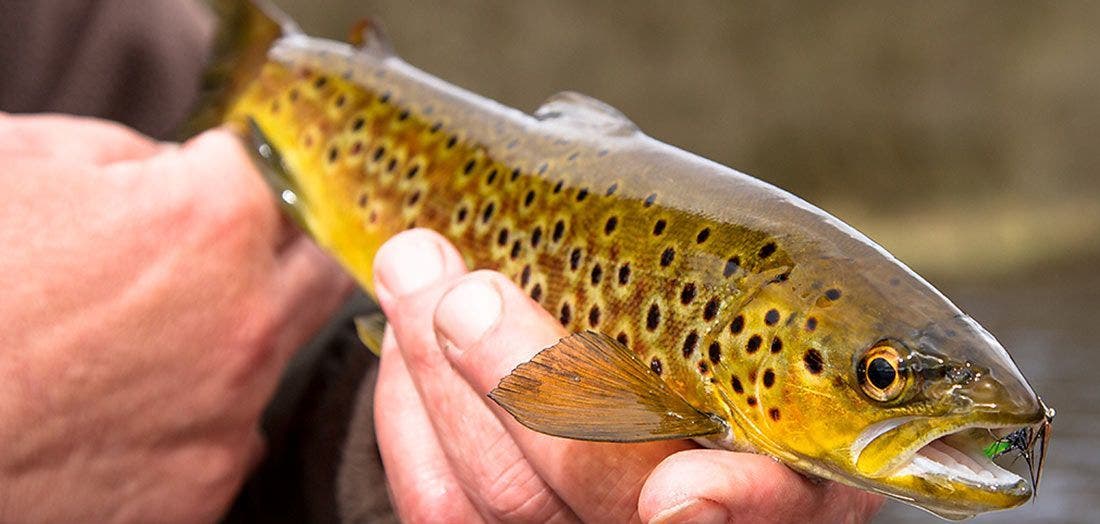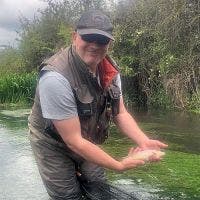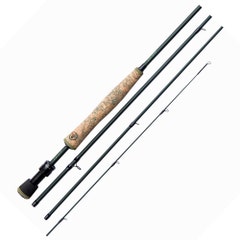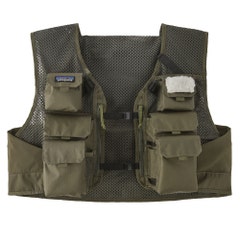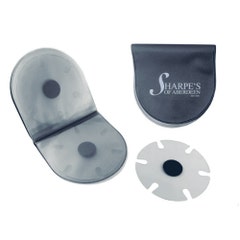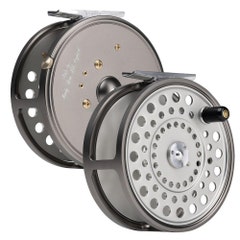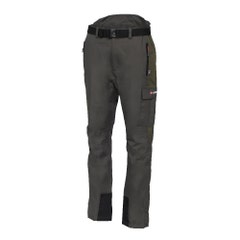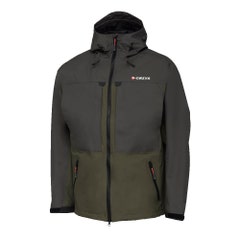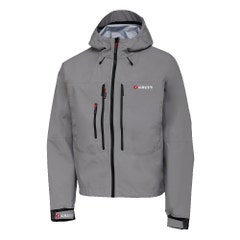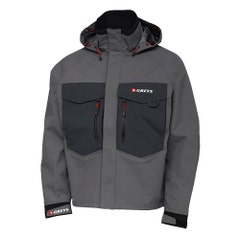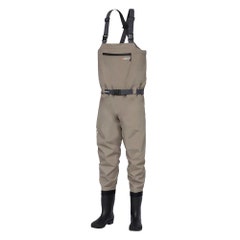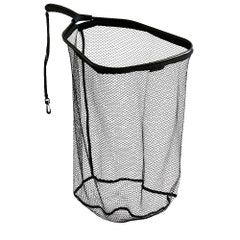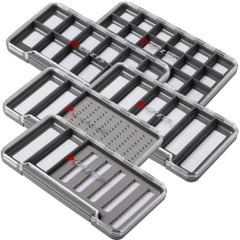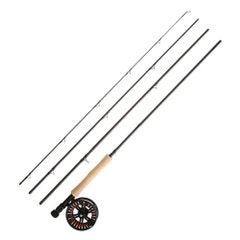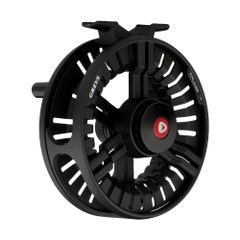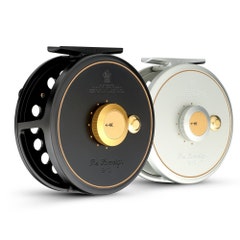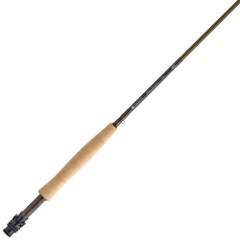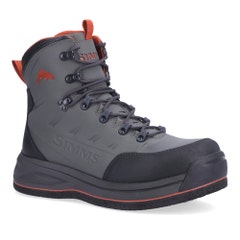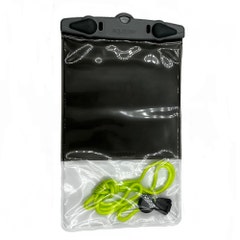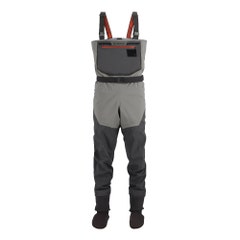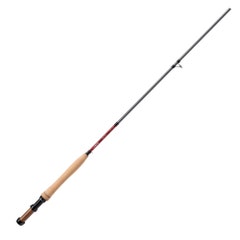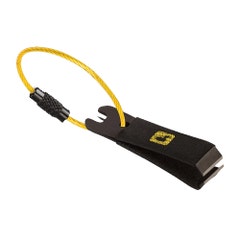Simon Tilbury, Farlows Group Head of Marketing and river trout fishing enthusiast, offers his key advice on how to make the most of your river fishing this spring - for him it’s some of the best wild trout fishing of the year!
THE RIVER TROUT SEASON FINALLY DAWNS
If like me you’ve been counting down the days to the start of the trout season on your local river for months, then it may be you’ve already been out on the water by now. It’s likely too that before you hit the river you spent a few happy hours going over your fly fishing kit. Maybe more than once.
There’s some excellent sport to be had in the early weeks, even if the water temperature isn’t optimum. Plus, it’s just good to be out on the water, and everything that it brings, fish or no fish.
Here are my top tips for a successful first few forays this Spring.
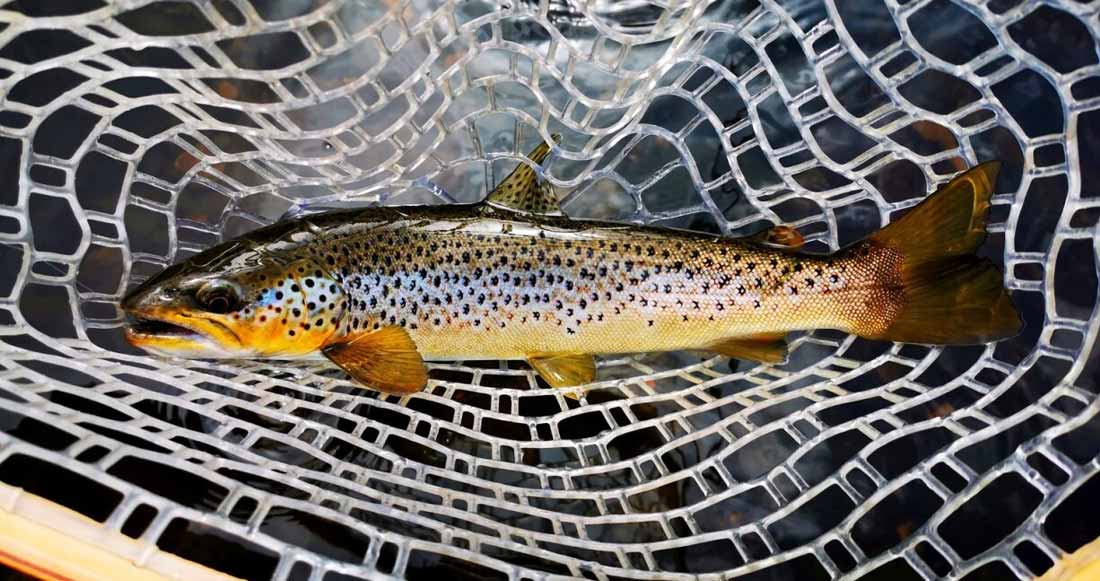

BEFORE YOU GO
Check the state of all your kit. Have a thorough inspection of your rods, especially all the fittings. Go over your reels and look and listen for things that aren’t right.
Farlows offers a completely free, while you wait reel clean and overhaul service - you only pay if you require parts or line.
So if you need to, call in to see Tom “the reel doctor” Clinton whenever your reel is looking or feeling a little under the weather and use our fly reel care service.
Most importantly if you want your fly line to float properly, give it a good clean to get rid of all the dirt and grime it would have acquired last season. Some useful tips are here in our 'How To Take Care Of Your Fly Line' guide.
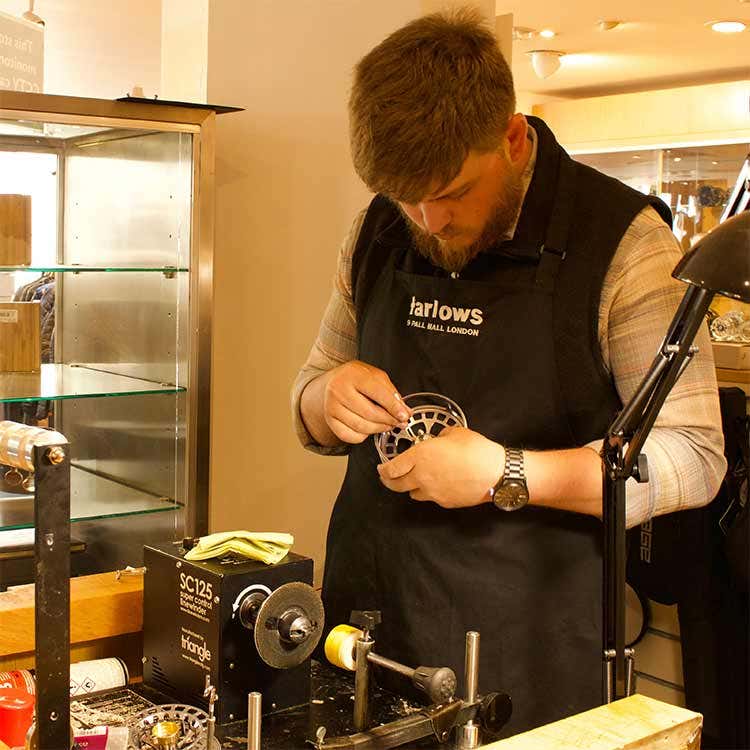

If you wade, then you’ll want to make sure both your waders and wading boots are in top condition to keep you dry. I check for leaks in my waders the same way I do with punctures in bicycle inner tubes - in the kitchen sink. Last month I fixed a few pinprick leaks in my waders and mended my wading boots where the stitching had worn with Stormsure, it’s great stuff.
Have a once over your of your landing net and check for any damage. Finally I go over my flies, leaders, tippet material, floatant etc. to make sure I have enough of everything. Inevitably I will buy more flies to replace those I left last year in the hawthorn trees and brambles that line the banks of my local stretch. If you’re short on a few things, check out our collection of recommended tackle for river trout fishing.
Finally, your casting is likely to be a bit rusty. It may be worth getting a pre-season lesson or even some practice on the lawn. Our sister brand Sportfish offers fly casting tuition to cater for every level of angler from some of the best instructors in the business.
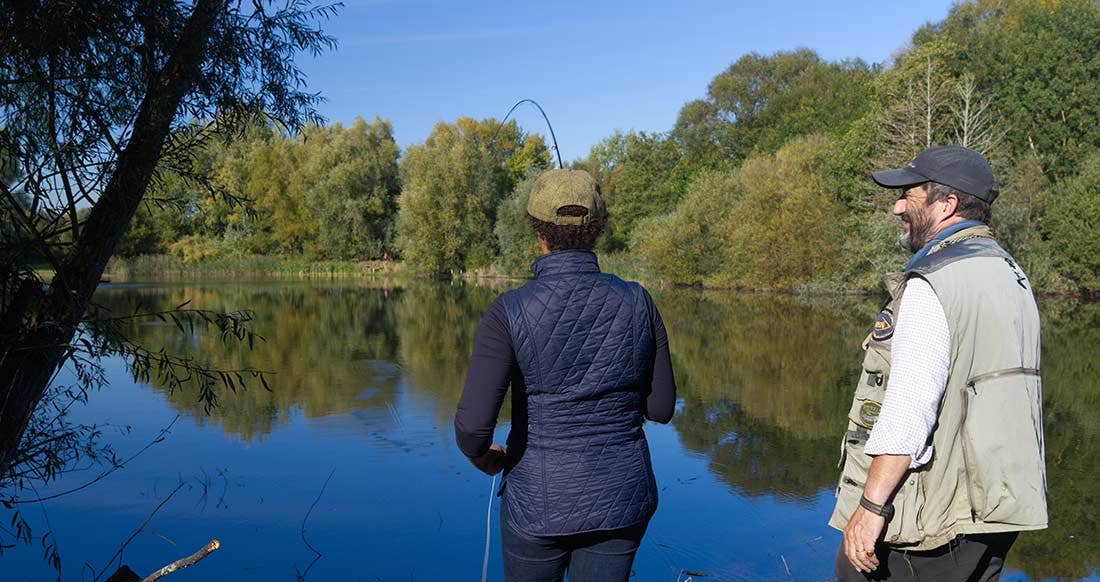

KEEP WARM
It’s often colder than you remember, especially if you’re in the water, so make sure you have enough layers and a decent waterproof or wading jacket. A flask of hot coffee can be a godsend, especially for warming cold hands. I always try to ensure my lunch has a few sweet treats too, to keep my energy levels high. The weather can be unpredictable, so do what you can to prevent it spoiling your fun. Don’t forget your polarised sunglasses too (I find yellow lenses best in poor light), even if you can’t see much into the water, they’ll protect your eyes when your casting is not quite fully fine-tuned and it’s windy.
BE PREPARED
The image I have in my mind of how the river will be on my first day of the season is always rather different from the reality, despite what I know and what I tell myself. Here’s how I’ve been imagining my local stretch in my head before my first trip:
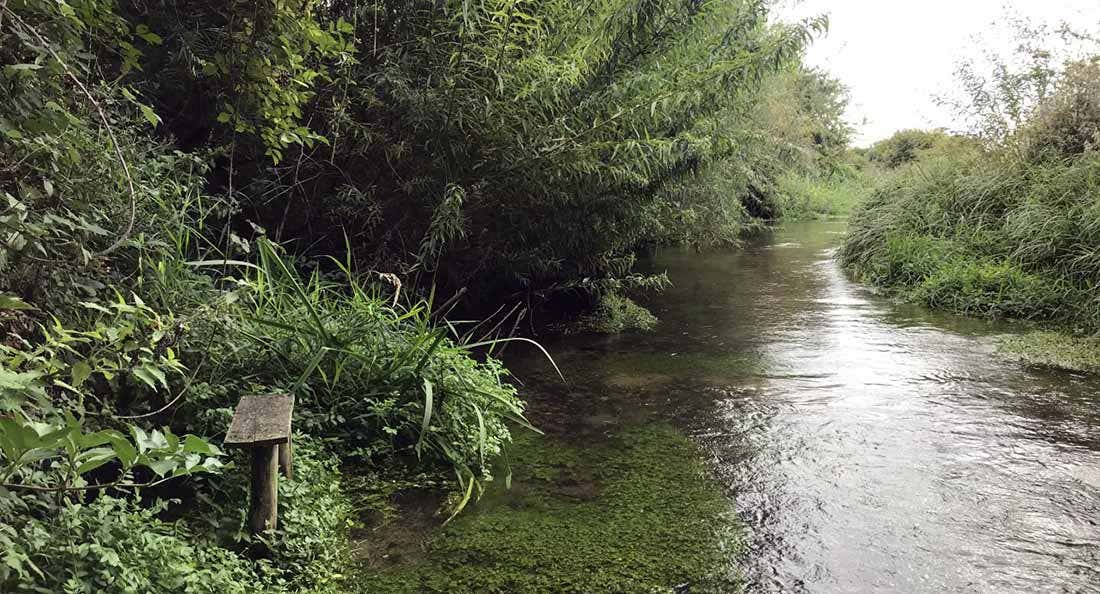

And here is the same place and what I actually encountered on Saturday 1st April last year, with the river in spate and so coloured I couldn’t see the bottom anywhere on the entire beat (unfortunately it was the only day for 2 weeks I could get to the river, and I was going fishing regardless of conditions!):
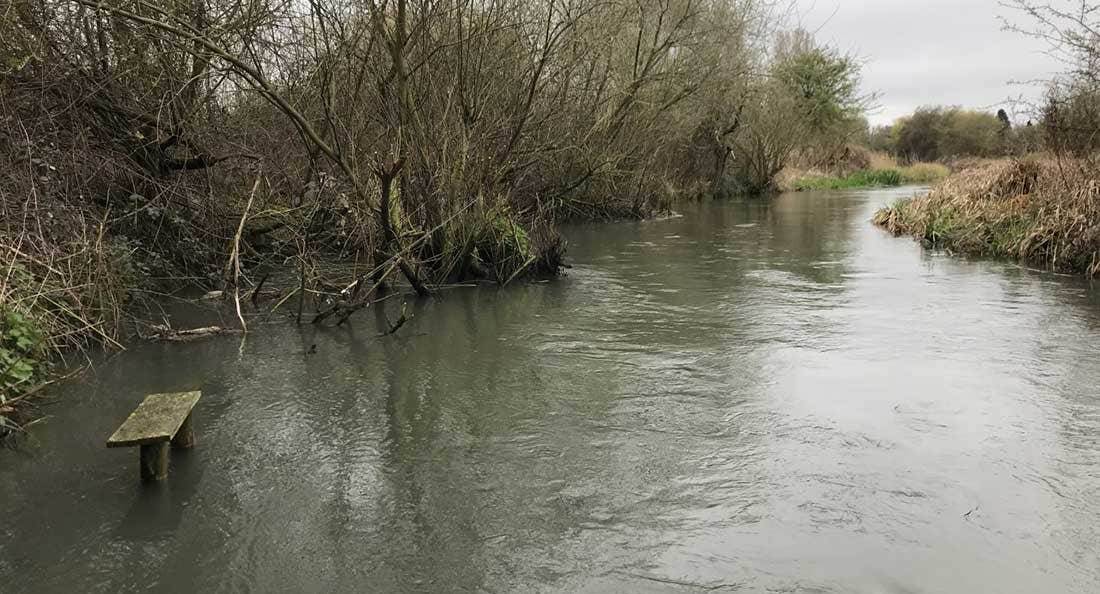

BE ADAPTABLE
Early season tactics require you to be more adaptable because water levels and colour can vary hugely. Given the lower water temperature, trout will be less active and therefore less visible and less likely to take your fly.
You’ll need to get something right in front of them, and the likelihood is it will be a weighted nymph rather than a dry fly. That said, on some rivers there can be some exciting brief hatches early on in the season (March Browns and Large Dark Olives), especially around the warmest parts of the day between 11am and 2pm, so make sure you’re ready as the window can be pretty short. If you’re on a bigger river or a section with deep, fast water you can try a streamer of course, or even some downstream wet flies.
There’s always a solution when you’re not catching, you’ve just got to think about what that may be. So be prepared to change tactics when things aren’t working. Go slow and use your observation skills, and don’t expect the fish to be in the shallows, leisurely feeding from the surface, or chasing flies cast metres from them. The fish are there, you just need to find them and get your flies on their nose.
PROSPECTING METHODICALLY
If your stretch is anything like mine in early April, the likelihood is you’ll be prospecting rather than sight fishing. These first few weeks I tend to prospect using the “klink & dink” method, with a bushy easily visible dry fly acting as an indicator, with either a weighted GHRE or Pheasant Tail nymph a few feet under it.
If your indicator fly submerges, strike. A lot of the time it’s weed or the riverbed, but you’ll know pretty quickly when it’s a fish. Try to work out where the fish might be (it’s usually not where they will be in the summer), then cover the water effectively. I tend to break the water down into square segments, covering each area at least 3 times. Keep on the move, but go methodically and slowly and you’re more likely to have success.
Keep things at a reasonable range too, so you can keep in contact with your fly and line, remembering to retrieve in time with the flow, ready to strike at any second. Fish down the margins, in the foamy water lines, in the heads and tails of pools, in the pools, in fact fish everywhere until you find fish. I fish a little heavier early season, with shorter leaders and a larger breaking strain.
If you’re not restricted to a particular stretch, then try to do some research on rivers near you that can fish well early season. If you have some flexibility on the days you can fish, it’s worth checking out the weather forecasts too and selecting a dry, warmer day.
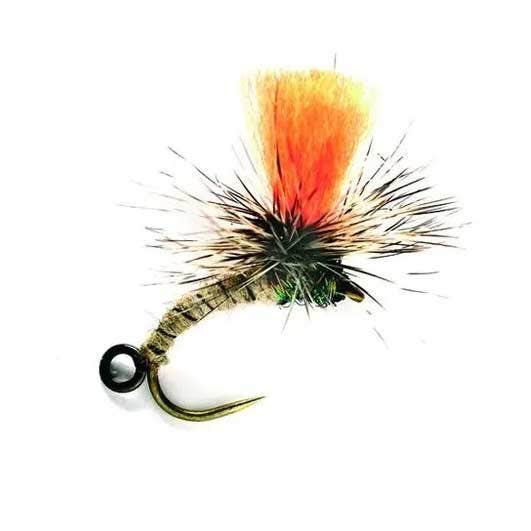

HAVE FUN
Remember it’s going to be challenging. You’re likely going to have to work harder for your rewards. When I look back through my fishing logbook, early April catches are limited, occasionally non-existent. But I remember them well, often better than many multiple summer ones. Because I had to work harder for them. And because I haven’t been on the water for so long and it’s simply brilliant to be back.
Fly fishing can be frustrating, but it should always be fun. Just be prepared and ready to adapt, enjoy being in or by the river again and know things will only get better from here! If you have your own thoughts, questions or advice... leave a comment below.


